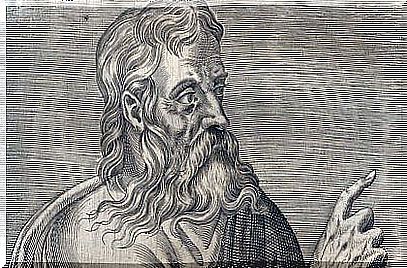7 Good Quotes From The Roman Philosopher Seneca

Maybe you are familiar with the Roman philosopher Seneca, or maybe this is the first time you have heard his name. Either way, you will enjoy our article on Seneca’s quotes, which have survived the test of time because they are true pearls of wisdom. It could not have been otherwise with one of the most famous men in the Roman Empire, whose writings had great significance for his contemporaries.
The highlight of Seneca’s sentences is his ethical message. Almost all of his writings, and indeed his life, are a moral model. He belonged to the philosophical school of stoicism, which suggested moderation. He lived in times when abundance was on the agenda.
The impressive intelligence and communicative capacity of this great thinker generated many plots against him and jealousy as well. He suffered from recurrent asthma throughout his life. He also lived close to poverty, knowledge and philosophy. Here are just a few quotes from the philosopher Seneca that have been left to us for the future.
To dare or not to dare
One of Seneca’s best sentences says the following: “It is not because things are difficult that we do not dare. It is because we do not dare that they are difficult. ” A startling reflection that is even more impressive if you take into account that it was designed 2000 years ago.

Seneca’s opinion in this is that things can be much more complicated in our minds than in reality itself. He understood that humans tend to make a mountain of pebbles out of the things we observe, all because of fear.
2. One of the most beautiful phrases from the philosopher Seneca
This is without a doubt one of the most beautiful things Seneca wrote. He said, “Why complain about the sea if you ride its waves again?” In this short quote we can appreciate his poetic capacity, his delicate sensibility and his clear realism.
The quote refers to the fact that a person has no reason to complain about what he is actively seeking. He points out that maybe the first time can be excused, but not if we do the same thing again. If he’s sailing again, it’s because he’s done it before. If you do not like it, why do you do it again?
3. Hidden and exposed hatred
If the philosopher Seneca knew of one thing, it was hatred. He was never a man of conspiracies, or of plots against others. Despite this, his intelligence and flow aroused suspicion, envy and caution.

Maybe that’s why one of Seneca’s sentences goes like this: “Hidden hatred is worse than obvious hatred.” It is very likely that we have all experienced this truth at one time or another. Often the most bitter hat is not the most visible.
4. The value of difficulty
As a good stoic, Seneca gave great importance to difficulties. He did not give it a negative meaning, nor did he avoid it. Rather the opposite. He argued that problems are a source of growth and progress.
This is amazing captured in the following quote: “Difficulties strengthen the mind, as the work does to the body”. In other words, Seneca sees difficulties as an opportunity to exercise and develop the ability to discuss.
5. Control anger
Here is another of the Seneca phrases that will surprise us because of its simplicity and depth. “The best remedy for anger is a little bit of reflection.” It provides a perfect solution for dealing with anger. It is a simple and extremely effective formula for those who put it into practice.
It is a practice that never fails. In most cases, anger is easily controlled with a short break. Just be quiet and calm for a few minutes. The calm returns and that way we will never say things that we will regret in the future.
6. The courage of living
Seneca’s life was certainly not a rose garden. Especially during the reign of Caligula, who simply pursued him out of jealousy. The same thing happened to Nero, a student of his, who eventually sentenced him to death.
We must add the fact that Seneca always suffered from very poor health, and suffered greatly because of his asthma attacks. Perhaps because of all this, one of his sentences that has accompanied history is the following: “Sometimes even living is an act of bravery.”
7. Logic of good habits
Seneca makes a statement here that is very wise and inventive, on the subject of good habits. He says the following: “Good habits compliment each other, and that is why they last.” As always, in a short sentence, he summarizes a world of wisdom.

What he emphasizes is that good habits are not isolated realities. A good habit does not survive in the midst of several negative habits. To be stable, they must also be consistent or coherent with each other.
There are hundreds of quotes from Seneca, and all are equally extraordinary. It is not surprising that his thoughts have broken the barriers of the times, and that they are completely valid for the time we live in now.









